Iran's currency falls to one million per dollar after Trump threat
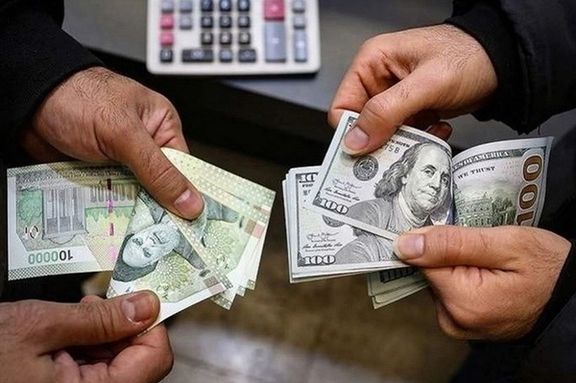
A day after US President Donald Trump warned Iran of retaliation if its Houthi allies in Yemen launched an attack, the rial sank to a historic low against major currencies.

A day after US President Donald Trump warned Iran of retaliation if its Houthi allies in Yemen launched an attack, the rial sank to a historic low against major currencies.
The currency was trading at one million per US dollar in Tehran on Tuesday as gold prices also rose. This represents a 14,000-fold devaluation of the rial, which had remained stable at 70 per dollar for over a decade before the 1979 Islamic Revolution.
Food inflation, which has averaged 100% in recent months, is expected to reach critical levels in the coming months unless Tehran initiates negotiations with the Trump administration.
The rial, which was valued at around 40,000 per dollar in early 2018, began to plummet after Trump withdrew from the JCPOA nuclear deal in May of that year and imposed tough economic sanctions, pushing inflation above 40%.
Despite long negotiations with the Biden administration in 2021-2022, Tehran did not reach an agreement with the US over reviving the JCPOA and its economic situation continued to deteriorate.
In February, President Trump called for new negotiations, stressing that Iran must not acquire nuclear weapons and vowing to tighten sanctions. So far, Supreme Leader Ali Khamenei has rejected talks, while Iranian officials maintain that Tehran will not negotiate under pressure.
Three days ago, Trump ordered air strikes against the Yemeni Houthis who have attacked international shipping in the Red Sea region and lobbed missiles at Israel. This was seen as a clear warning to Tehran. On Monday, Trump warned Tehran that it will be punished if its allies the Houthis retaliate against a US air assault over the weekend, escalating his rhetoric against Tehran.
"Every shot fired by the Houthis will be looked upon, from this point forward, as being a shot fired from the weapons and leadership of IRAN, and IRAN will be held responsible, and suffer the consequences, and those consequences will be dire!" Trump wrote on his Truth Social platform.
As tens of millions of Iranians earn the equivalent of less than $150 a month and inflation is rising, some media outlets and commentators in Tehran have warned of potential unrest.
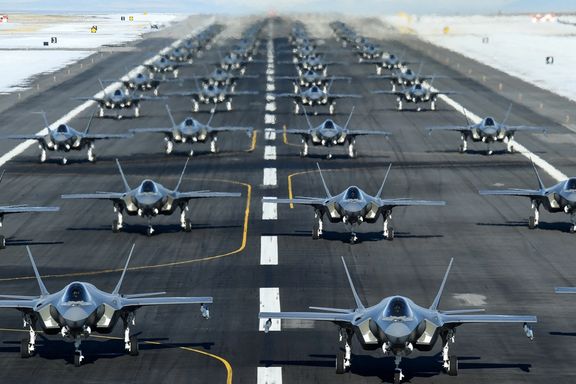
One of Iran’s most hardline media commentators warns that negotiating with the United States will increase the likelihood of an attack on Iran, arguing that accepting Washington’s terms would leave the country more vulnerable.
US-educated hardliner Foad Izadi, often cited by Iranian media as an expert on US politics, told the conservative Nameh News website that Washington has refrained from attacking Iran because it views such a move as too costly.
"Those who do not want their country to be attacked by the United States should not repeat Trump's statements," Izadi said. He also claimed that Washington is pressuring Iran’s neighbors to cut economic ties, including efforts to push Iraq to halt electricity and natural gas imports from Iran.
Izadi made the remarks before President Donald Trump issued a warning to Tehran on March 17, warning that it will bear responsibility for any attack by Yemeni Houthis, who are supported by the Islamic Republic.
Hardliners within Iran's ruling circles staunchly defend Supreme Leader Ali Khamenei's refusal to negotiate with the United States, despite clear warnings by the Trump administration.
Izadi argued that "the United States wants to limit Iran's access to conventional weapons. Therefore, negotiating with Washington is likely to increase the possibility of a US attack on a weak Iran."
Meanwhile, a prominent politician close to former President Hassan Rouhani, who supports
A prominent politician close to former President Hassan Rouhani, who supports negotiations, offers a different perspective, stating, "The United States is genuinely seeking a solution to its dispute with Iran over Tehran's nuclear program."
In an interview with the moderate conservative website Khabar Online, Mahmoud Vaezi, a senior aide to Rouhani and deputy leader of the Moderation and Development Party, said Washington is genuinely pursuing détente with Iran and hopes to resolve the ongoing nuclear dispute.
"Lifting US sanctions through negotiations with Washington will bring about an economic breakthrough in Iran," Vaezi asserted. Referring to plans for the Iranian New Year, which begins on March 20, he stressed that Iran must make difficult decisions to address its deepening economic crisis, which has severely impacted people's livelihoods.
He further emphasized the need for swift action to ease tensions with the United States and other countries, calling it a necessary step in the broader reforms required to stabilize living conditions in Iran.
The politician also urged Iranian officials to work toward removing barriers to international trade, reducing government intervention in economic affairs, and strengthening the private sector. He emphasized the need to foster a fair competitive environment to encourage greater private sector participation in the economy.
Like many other politicians in the Reformist camp, including Rouhani, Vaezi emphasized that Khamenei has not completely ruled out negotiations with the United States. He also tried to highlight contradictions in Trump's statements and actions.
In another development, Iranian academic and international law expert Mehdi Zakerian suggested in an interview with the reformist Shargh daily that Foreign Minister Abbas Araghchi should take a more proactive role in breaking Iran’s diplomatic deadlock. He argued that the current foreign policy crisis does not justify inaction. "The art of a diplomat is to offer solutions to crises. Stepping into an ideal situation and signing a pre-written agreement would be easy for anyone."
Expressing regret, Zakerian said, "Iran has missed many opportunities to actively resolve its own disputes with other countries and to contribute to regional conflict resolution." As examples, he pointed out, "Iran could have made more constructive decisions during last year’s wars in Gaza and Lebanon."
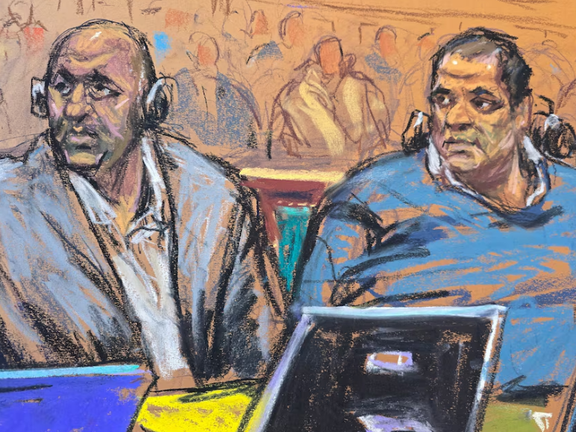
The testimony of an FBI agent Monday in Manhattan Federal court reveals Iran’s ties with the mobsters who they allegedly hired to kill dissident Iranian American journalist Masih Alinejad.
Supervising special agent Justin Tuerack, who oversees the Iran squad at the bureau, took to the stand Monday, detailing the investigation into digital communications of the suspects.
Tuerack said he analyzed the meta data and IP addresses belonging to the cloud, Whats App, Apple IDs and Google Accounts of defendants Rafat Amirov, Polad Omarov and Islamic Revolutionary Guard Corps (IRGC) Ruhollah Bazghandi and members of his Iran-based network - Haj Taher, Hossein Sedighi and Seyed Mohammad Forouzan.
Federal prosecutors said Bazghandi orchestrated the alleged 2022 plot to kill the journalist in Brooklyn. Bazghandi, the brigadier general in the IRGC was previously chief of the Revolutionary Guard's counterintelligence department.
Orders from Iran to assassinate Alinejad
Khaled Mehdiyev, who pleaded guilty to attempting to assassinate Alinejad, testified that he received direct orders from fellow mobsters Amirov and Omarov. These men were acting on instructions from a network led by Bazghandi, according to prosecutors.
Mehdiyev, the would-be assassin, admitted in court that he had been stalking Alinejad outside her Brooklyn home in 2022 with one objective: “Shoot the journalist, kill the journalist.”
The prosecution claims that the Iranian government paid Amirov and Omarov $500,000 to orchestrate the assassination in retaliation for Alinejad’s human rights activism.
The plot was thwarted on July 28, 2022 when police arrested Mehdiyev of Yonkers, New York, as he passed a stop sign driving away from Alinejad’s house.
Digital evidence
Now web searches, text messages, calls and images stored on the cloud of the suspects is revealing the web of connections between the mobsters and Iran.
FBI-submitted evidence included WhatsApp messages from accounts allegedly belonging to Omarov and Amirov. These texts documented their communications with Mehdiyev, Bazghandi, and the IRGC network regarding the assassination attempt.
On July 23, 2022, Omarov sent a chilling message to Amirov: "we blocked it from both sides, it will be a show once she/he steps out of the house," according to FBI metadata evidence submitted in court.
Amirov's IP address showed him as being located in Iran's Western province of Azerbaijan, according to Tuerack at the time. “God willing we will have good news." he wrote back to Omarov.
A few days later on July 27, 2022 Omarov texted Amirov that Mehdiyev's hit on Alinejad would be his birthday gift, which is July 30 according to Omarov's passport.
"I told him to make this a birthday present for me," Omarov text message read said the FBI.
The conversation between the two would-be assassins reflects Mehdiyev's arrest. arrested.
“The fat one did not get in touch” Amirov texted Omarov in early August, apparently referring to Mahdiyev. "Damn him. I don’t want him to cause trouble,” Omarov texted back.
Rafat the Thief
After Mehdiyev’s arrest in July 2022, google searches from the IRGC network show the men searching “Rafat the Thief”, testified Tuerack.
Notably, this search occurred before any public knowledge of Amirov’s alleged involvement in the plot, a detail federal prosecutors emphasized.
Google map searches of Alinejad home, the pharmacy she used, photos and google searches of her husband Kambiz Foroohar were also made from the accounts affiliated with the IRGC network.
On September 5, 2022, a member of Bazghandi team, Sadighi, sent fellow member Haj Taher a message allegedly addressed to yet another alleged member of their network named Forouzan: "this is addressed to you, your boss and the mafia."
There were youtube searches "who wants to kidnap Masih Alinejad" coming from their work, said the FBI.
Forouzan,, according to Tuerack had three entries to describe a phone number allegedly belonging to Amirov: brotherhood, Rome and Rome/Rafat.
From Sept 14, 2022 - to Nov 27, 2022 - Forouzan allegedly contacted Amirov over text 362 times and made 226 calls to each other.
The Bazghandi Network continued to collect information on Alinejad until at least May 2023. The FBI thwarted two plots prior to the attempt to kill Alinejad, one in 2020 and the other in 2021, also by Iranian state agents trying to kidnap the journalist and take her to Iran.
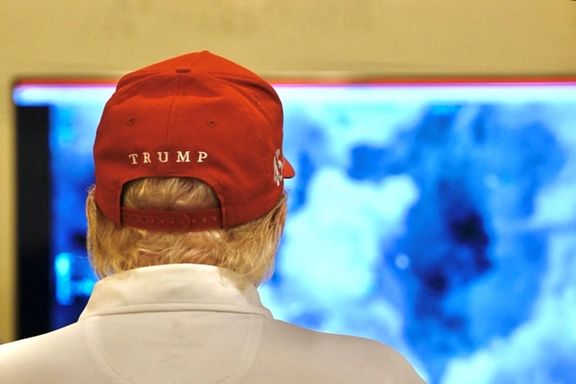
US President Donald Trump warned Iran on Monday that it will be punished if its Yemeni allies the Houthis retaliate against a US air assault over the weekend, escalating his rhetoric against Tehran.
"Every shot fired by the Houthis will be looked upon, from this point forward, as being a shot fired from the weapons and leadership of IRAN, and IRAN will be held responsible, and suffer the consequences, and those consequences will be dire!" Trump wrote on his Truth Social platform.
Trump on Saturday ordered large-scale military strikes against dozens of targets in Yemen controlled by Tehran-backed Houthi armed group, saying the attacks aimed at ensuring freedom of navigation through shipping lanes the militants have targeted.
Fresh US air strikes hit Yemen on Monday, the Houthis' Al Masirah TV reported. The Houthi-run health ministry said on Sunday that at least 53 people were killed in the attacks.
At a Pentagon press conference on Monday, lieutenant general Alexus Grynkewich told reporters that military casualties among the Houthis were in the dozens but there were no indications of civilian casualties.
Shortly after Israel's incursion into Gaza triggered by a Hamas attack on Oct. 7, 2023, the Shi'ite militant group which seized control of much of Yemen started missile and drone strikes against commercial and military vessels in the Red and Arabian Seas.
They described the effort as a blockade in solidarity with the Palestinian people.
Iran and the Houthis have denied close military coordination but weapons experts have linked the Yemeni fighters' advanced arsenal of anti-ship and ballistic missiles to Iranian technology.
US forces have been locked in their most intense naval combat since World War II with the Houthis but have yet to constrain the maritime attacks.
"Let nobody be fooled! The hundreds of attacks being made by Houthi, the sinister mobsters and thugs based in Yemen, who are hated by the Yemeni people, all emanate from, and are created by, IRAN," Trump added.
"Any further attack or retaliation by the 'Houthis' will be met with great force, and there is no guarantee that that force will stop there."
As ceasefires have taken hold pausing combat between Israel and its badly bludgeoned Hamas and Hezbollah militant adversaries, the Houthis have become the vanguard of Tehran's network of armed affiliates in the Middle East.
The Trump administration views their continued harassment of commercial shipping as an obstacle to his fight to bring down prices for US consumers and continued but largely ineffectual targeting of US forces as a nuisance.
"Iran has played “the innocent victim” of rogue terrorists from which they’ve lost control, but they haven’t lost control," Trump said.
"They’re dictating every move, giving them the weapons, supplying them with money and highly sophisticated Military equipment, and even, so-called, “Intelligence.”
Trump this month demanded Iran agree new deal over its nuclear program or face military attack - an overture rejected by Iran's Supreme Leader as bullying.
Ayatollah Ali Khamenei warned Washington would come off worst in any confrontation, insisting that Iran had not been weakened by over a year of direct and proxy conflict with Israel.
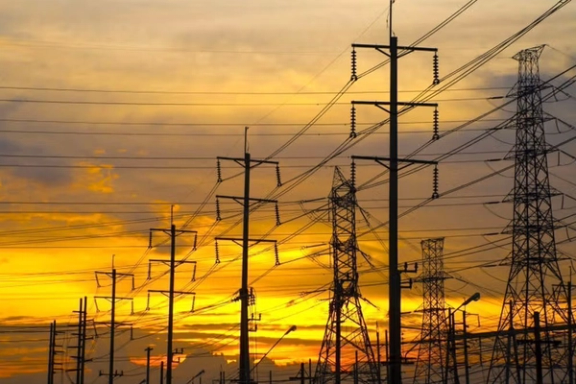
Iranian President Masoud Pezeshkian announced that government offices and executive bodies will be required to install solar panels as part of efforts to address the country's energy shortages, state media reported Monday.
Speaking at a meeting on energy distribution and consumption, Pezeshkian stressed the need for equitable energy policies and flexible solutions adapted to regional conditions.
“Addressing energy imbalances should not be confined to a single approach,” he said, advocating for a mix of strategies to optimize distribution and ensure fairness across different provinces.
Iranian officials refer to the shortages in the energy sector as an imbalance.
The president also emphasized public engagement in energy-saving initiatives, suggesting that mosques, health centers, and prominent cultural figures could help promote consumption reforms.
“If we involve people in implementing these decisions, we will overcome many challenges, including energy distribution and consumption management,” he added.
Among other measures, Pezeshkian highlighted the need to modernize heating equipment, ban outdated and inefficient appliances, and expand the use of smart meters in residential areas.
The energy crisis, marked by widespread electricity shortages and gas deficits, has disrupted industries across the country since the past months. Aging infrastructure, international sanctions, and poor management have compounded the problem, leading to the shutdown of approximately 80 power plants.
During the winter, Iran faces a daily shortfall of at least 260 million cubic meters of gas, further straining the electricity supply.
Iran has vast oil and gas reserves, much of which it cannot tap due to US-led sanctions which stall investment and maintenance.
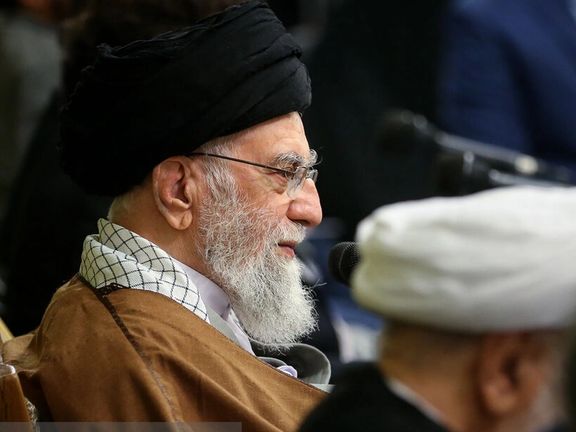
The threat of war looming over Iran by President Trump’s ultimatum to make a nuclear deal or face attack may be a blessing in disguise for rulers in Tehran as they seek to manage growing popular discontent.
Iranian officials have repeatedly rejected negotiations with the United States under terms set by Donald Trump, doubling down on Supreme Leader Ali Khamenei's hardline stance.
Questioning the point of talks with a "deal-breaking" US president, Khamenei on Monday nonchalantly dismissed the consequences of shunning Washington.
"The United States is threatening militarization,” Khamenei said on the day his foreign ministry finally confirmed receiving a personal letter from Trump to Khamenei. “War is not a one-sided blow. Iran is capable of retaliating and will certainly do so,” he added.
War, once a distant threat, now looks a distinct possibility. It should concern those in power Tehran—and it perhaps does. But it may serve them as an instrument to deter adversaries and to enforce control at home.
War as a mechanism for control
Looking at Iran’s official outlets, the refrain of war is omnipresent. Military figures dominate state media and security-focused language overshadows other narratives.
This change of tone and substance—transmitted mainly inside Iran—appears to be not just a response to foreign threats, but a calculated strategy to unify and subdue the populace, forcing societal alignment by amplifying fears of conflict.
And this approach is driven by insecurity as much as intent.
Behzad Nabavi, a former minister and veteran lawmaker of the Reform camp, said recently that a wartime atmosphere could foster national solidarity, suggesting that even moderates long-shunned from power circles see fear as a unifying force.
Meanwhile, those in power have intensified the crackdown on the internet, branding the free flow of information a “cognitive war.” The sentiment was best summed up recently by Iran’s national police chief Ahmadreza Radan.
“Back then, we were encircled in the Komeil trench,” he said, invoking memories of the eight-year war with Iraq in the 1980s. “Today, we are surrounded in virtual trenches. If we’re not fighters now, we’ll surely retreat and surrender the homeland."
War as a gambit for survival
The Islamic Republic faces multiple challenges of significant severity: an ailing economy, environmental collapse, budget shortfalls, and entrenched corruption. Public trust has eroded, with sporadic protests signaling discontent.
Fearing another “sedition”—a term used to label past protests and justify their brutal suppression—officials now see war’s shadow as a lifeline.
The theocracy has a proven record of internet blackouts, arbitrary arrests and harsher suppression of dissent in general. It can be expected to do more in a state of inflated external threats, dishing out labels of “subversion” and “enemy collaboration.”
This isn’t mere opportunism—it’s a high-stakes gamble.
Iranians did rally during the war with Iraq, especially the early years. But that was forty-odd years ago. And Khamenei is no Khomeini, the first supreme leader who had all but universal following when he called for Iran’s monarchy to be replaced by an Islamic Republic.
Today, the system, as Khamenei likes to call it, is all but universally loathed. While he clings to power by keeping loyal forces primed and its critics silenced, millions of ordinary Iranians face an unrelenting battle of survival.
Stoking war fears and siege mentality to stifle unrest may work for the supreme leader. Or it could backfire spectacularly and save Trump a war he clearly does not want.
War as a lever for defense and deterrence
The Islamic Republic frames conflict as both a defensive necessity and a means to intimidate foes. Israel and Arab states astride the Persian Gulf have often borne the brunt of this rhetoric.
A senior commander of the Revolutionary Guards (IRGC) warned recently that an attack on Iran’s nuclear facilities would spark “a fire in the region that cannot be contained.” Another senior IRGC figure made it clearer: "True Promise 3 will take place at the right moment, destroying Israel and leveling Tel Aviv and Haifa.”
These threats are backed by action. Iran has nearly doubled its military exercises since October 2024, according to the Financial Times, with drills concentrated near the Natanz nuclear facility and the Strait of Hormuz.
This posturing may not be as effective in deterring the US or Israel but does help shape domestic perceptions amid worsening economic and social crises.